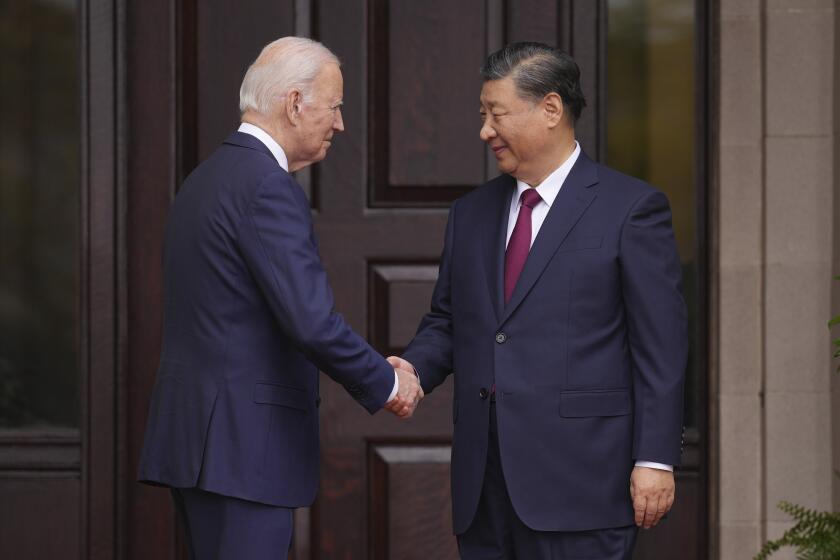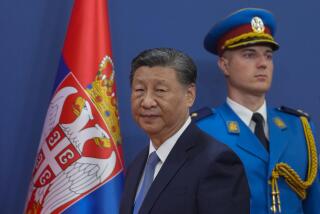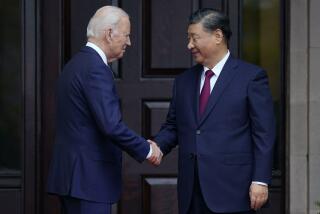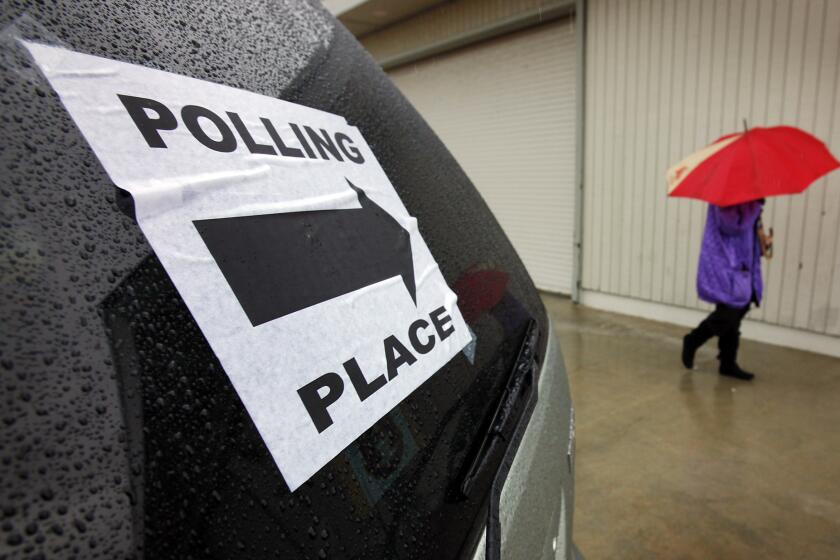Chinese president issues a positive message at a meeting with U.S. business leaders
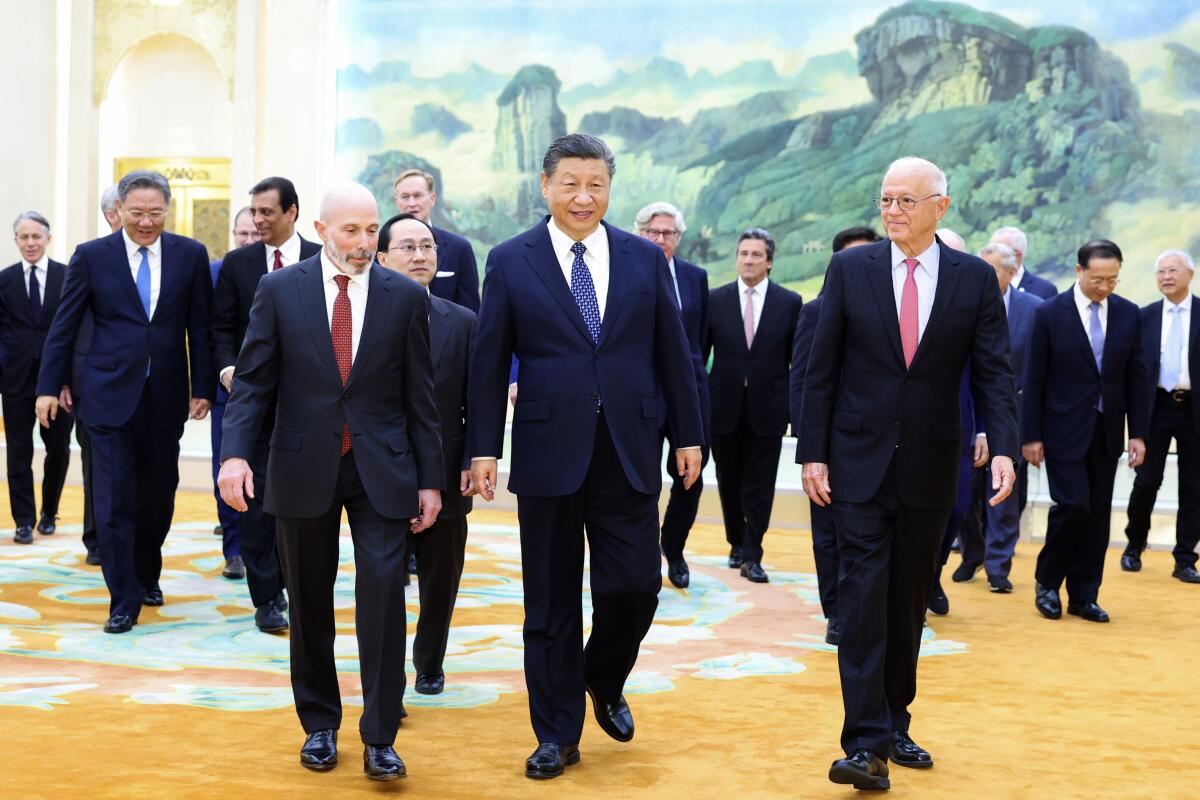
BEIJING — Chinese President Xi Jinping called for closer trade ties with the U.S. during a meeting on Wednesday with top American business leaders in Beijing that came amid a steady improvement in relations that had sunk to the lowest level in years.
Xi emphasized the mutually beneficial economic ties between the world’s two largest economies, despite heavy U.S. tariffs on Chinese imports and Washington’s accusations of undue Communist Party influence, unfair trade barriers and theft of intellectual property.
China’s economy has struggled to recover from severe self-imposed restrictions during the COVID-19 pandemic that it lifted only at the end of 2022. But Xi said that China was again contributing to world economic growth in the double digits, percentage-wise.
“Sino-U.S. relations are one of the most important bilateral relations in the world,” Xi was cited as saying by China’s official Xinhua News Agency. “Whether China and the United States cooperate or confront each other has a bearing on the well-being of the two peoples and the future and destiny of mankind.”
Biden sought to smooth over tensions with China’s Xi, who said conflict with the U.S. has ‘unbearable consequences’ for both countries.
Participants at the meeting included Stephen A. Schwarzman, the billionaire head of investment firm Blackstone.
Trade and tariffs have increasingly drawn attention in the run-up to the U.S. presidential election, and the Biden administration has shown little sign of moderating punitive measures against Chinese imports imposed by his predecessor and presumed opponent in the November election, Donald Trump.
U.S. officials have renewed concerns over Chinese industrial policy practices and overcapacity, and the resulting effect on U.S. workers and companies, that they blame in part on China’s massive trade surplus that amounted to more than $279 billion last year, its lowest level in about a decade.
Following the meeting, the U.S.-China Business Council said in a statement that it was honored to have a dialogue with the country’s top leader to “discuss our concerns over the decline in trade, investment, and business confidence, as well as our desire to help improve engagement and commercial exchange between our two countries.”
Americans are now importing more from Mexico than China. That means more goods are coming by truck through Texas, and less cargo enters the Southland’s ports.
“We stressed the importance of rebalancing China’s economy by increasing consumption there and encouraged the government to further address longstanding concerns with cross-border data flows, government procurement, better protection of intellectual property rights, and improved regulatory transparency and predictability,” the Washington-based council said. Its president, Craig Allen, was among the guests who met with Xi.
China’s economy has been bogged down by a crisis in its real estate market in which builders are struggling under mountains of debt and buyers are paying off loans on apartments that may never be completed. Other issues, such as an aging population and high youth unemployment, are prompting China’s leaders to lean more heavily on boosting export manufacturing to make up for weak demand at home.
At the same time, scores of foreign firms, including Apple, rely on China-based manufacturers as key links in their supply chains, along with the country’s 1.3 billion consumers for a high percentage of their global sales.
China’s exports tumbled by double digits in July, adding to pressure on the ruling Communist Party to reverse an economic slump.
China’s highly abrasive tone toward the U.S. has softened in recent months, particularly since Xi and Biden met in San Francisco in November. Officials such as U.S. Secretary of State Antony J. Blinken have visited, and Treasury Secretary Janet Yellen is reportedly due to to travel to China again to meet top leaders next month.
But Xi’s administration has maintained a hard line on issues it considers its “core interests.” Those include its claims to virtually the entire South China Sea, the self-governing island democracy of Taiwan — a close American ally — and its heavy-handed rule of outlying regions such as Hong Kong, Tibet and Xinjiang.
An ardent nationalist and son of one of the founders of the People’s Republic, Xi appears determined to maintain strict party control while drawing in foreign investment to shore up the economy.
“The respective successes of China and the United States create opportunities for each other,” Xi was quoted as saying by Xinhua. “As long as both sides regard the other as partners, respect each other, peacefully coexist and join together for win-win results, China-U.S. relations will improve.”
More to Read
Sign up for Essential California
The most important California stories and recommendations in your inbox every morning.
You may occasionally receive promotional content from the Los Angeles Times.
